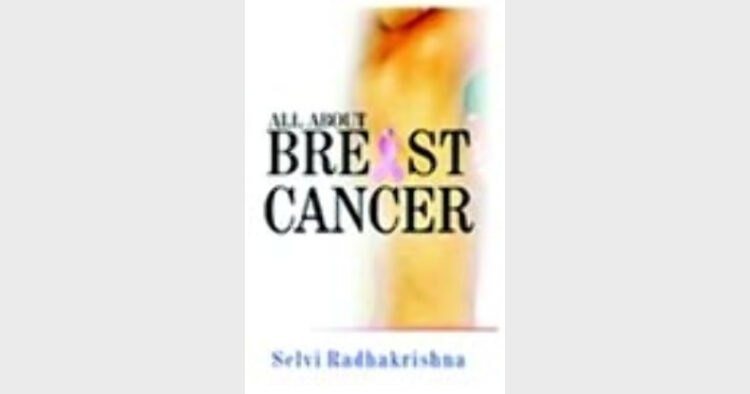 Jayant Patel
Jayant Patel
All about Breast Cancer, Selvi Radhakrishna, Macmillan Publishers India Ltd, Pp 112, Rs 245.00
WRITTEN by a consultant oncoplastic breast surgeon of Apollo Speciality Hospital in Chennai, this book presents a comprehensive study of diagnosis, treatment as well as multitude of emotions related to the treatment of breast cancer.
Brest cancer is one of the most common diseases afflicting women. Industrialisation and urban development in India with the recent trend towards excessive consumerism have changed their dietary habits, fertility patterns and increased life expectancy. The incidence of breast cancer is steadily increasing in India each year. Since 60 to 70 per cent of women present themselves to a doctor when they have crossed the age of 50 or so, their survival and life outcomes are less favourable than in the Western countries.
The author then goes on to explain how all the tissues in our body are made up of cells, which under normal circumstances replace themselves through an orderly process of cell growth. Healthy new cells replace the dead old ones. The genes are in each cell’s nucleus, which acts as the ‘control room’ of each cell. Cancer is caused due to mutation or abnormal changes in the genes responsible for regulating the growth of cells and keeping them healthy. Over time, mutations can ‘turn on’ certain genes and ‘turn off’ others in a cell. This can be due to aging, hormonal disturbances, stress or heredity. Mostly the body gets rid of the defective cell but at times, the cell escapes the net and keeps dividing without control, producing more cells like itself and forms a tumour. Such uncontrolled proliferation of cells that invades and takes over the body’s function is called cancer. As the proliferation gets more and more out of control, it results in the formation of a lump. The cancerous cells may detach and enter the blood to lodge in the other parts of the body, like the bone, liver, lungs and brain. With this, the function of these vital organs gets compromised and results in organ failure and death.
The problem in India is that we do not have a breast-screening programme and for now it does not seem feasible or cost effective to implement nationwide mammography screening. Benefits of screening, particularly in the 40 to 50-year age group are still debated across the world. Availability of trained mammographers and radiologists is still a problem. The author says that there is an urgent need for dedicated professionals to take up this task and set up affordable quality breast screening centres around the country.
(Macmillan Publications India Ltd, 3A, 5th Floor, DLF Corporate Park, Gurgaon-122002; www.macmillanpubishersindia.com)














Comments